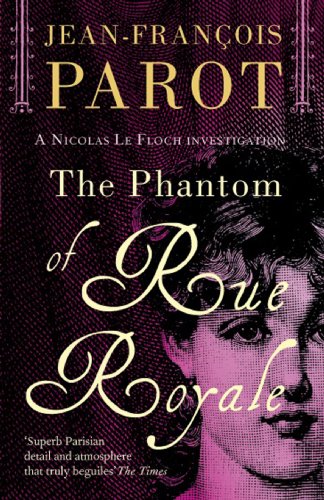The Phantom of Rue Royale
Police commissioner Nicolas Le Floch has a rooftop view of the firework display celebrating the marriage of the Dauphin to Marie-Antoinette in 1770 Paris, and watches helplessly as the badly-managed event turns to disaster. Among the crushed and maimed victims, Le Floch’s people find a young woman who has been strangled, and Le Floch wangles permission to investigate this murder by using it as cover for a wider investigation into the politically sensitive disaster.
Pre-Revolutionary politics and the unraveling of a complex story of family rivalries go hand in hand in this unusual detective story. Nicolas Le Floch is one of those useful protagonists whose history enables him to mingle with the very poorest and the very grandest of French society, so the reader gains insights into the court of Louis XV as well as the street life of 18th-century Paris.
The novel is hampered by Parot’s self-conscious style, particularly the endnotes which frequently simply refer to previous books – these could easily have been left out in the English translation. The loving way in which Le Floch investigates the preparation of every meal he consumes is French to the point of self-caricature – indeed, there were many points at which I wondered if the author was poking fun at his subject-matter, the reader, or both. Still, this is refreshingly different fare for readers who enjoy being kept on their toes, and I suspect the translation keeps faith with both the spirit and the letter of the original novels.










